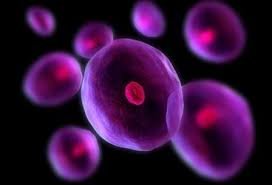Atelerix raises follow-on funding round of £700,000
May 10, 2019 | Friday | News
Cell encapsulation for transport of cells and tissues at room temperature
Atelerix, creator of an innovative cell encapsulation technology, recently announces it has closed a second round of funding of £700,000 to accelerate development of its cell transport products to market.
Atelerix’s products are used for the storage and transport of human cells and tissues at room temperature, removing the need for cryopreservation and the potential for cell degradation or damage. Atelerix sells its products and services to customers in the cell therapy sector, as well as those developing cells, organoids and assays for use in drug discovery and development.
Atelerix was a spin-out from Newcastle University (UK) in 2017 and raised £425,000 in 2018 in a seed investment round led by specialist investor, UK Innovation & Science Seed Fund (UKI2S). This funding allowed the company to validate its technology, develop easy-to-use product formats for use with different cells and tissues and launch products onto the market. The follow-on investment announced will be used to grow the team, increase revenues and expand the business, capitalising on the exciting opportunities in the cell therapy sector where delivery of viable cells to the patient remains a significant logistical challenge.
The new investment round was led by existing investors UK Innovation & Science Seed Fund (UKI2S), Oxford Technology Management and Newable Private Investing with new investors also joining the round. Dr Andrew Muir of UKI2S, who joined the board of Atelerix after the previous round, says “As a founding investor, UKI2S is delighted to see Atelerix well-positioned to complete the development of its proprietary platform and launch its products into two large markets. Based on great science, the company’s products have relevance to the large, growing markets of pre-clinical research and cell-based therapy.”
Prior to spinning the Company out of Newcastle University, founder Professor Che Connon’s academic research was supported by Biotechnology and Biological Sciences Research Council (BBSRC), a UKI2S partner. Professor Connon commented “Encapsulating cells in the alginate hydrogel is a simple system capable of preserving the viability and functionality of cells at temperatures between 4°C and 21°C for extended periods of time. Used as a method of cell storage and transport, it overcomes the acknowledged problems associated with cryo-shipping. For shipping, cells are encapsulated by the in situ formation of the gel in plates or vials, and can be rapidly released from the gel by the addition of a simple buffer.”









